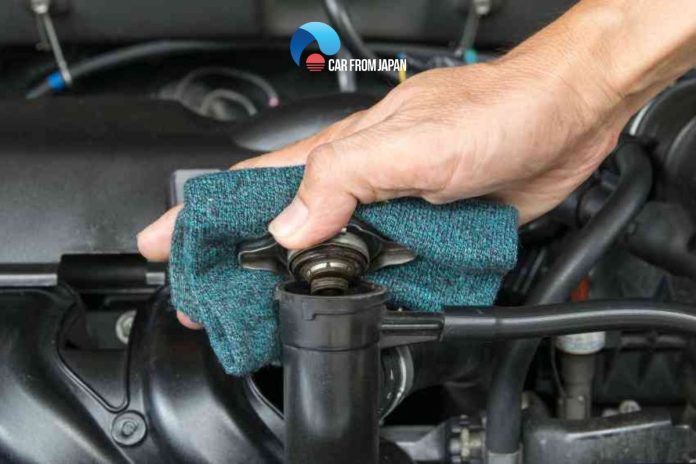What causes too much pressure in cooling system? The answer is heat.
When you apply heat to a liquid or gas trapped in an enclosed space, it expands and creates pressure. The refrigerant in your car’s cooling system works in the same way.
Do you want to know how the pressure buildup happens? Keep reading with Car From Japan!
Contents
What Causes Too Much Pressure In Cooling System?
Here are some common culprits for the cooling system holding up too much pressure. Some are easy to deal with, some need further professional diagnosis. Either way, you have to be prepared!
Faulty radiator cap
It is hard to believe that a simple car component like a radiator cap can actually push the coolant’s boiling point up by about 45°F (25°C).
It works the way a pressure cooker raises water’s boiling temperature. The cap is set to 15 psi in most cars and operates like a pressure release valve.
The cap acts as a pressure and safety valve. When the cooling system’s pressure exceeds the safety limit, the cap’s safety valve opens to discharge the extra coolant. Vehicles these days have a recovery tank to store that discharged coolant.
So beware when the radiator cap holding too much pressure and affect your whole cooling system!
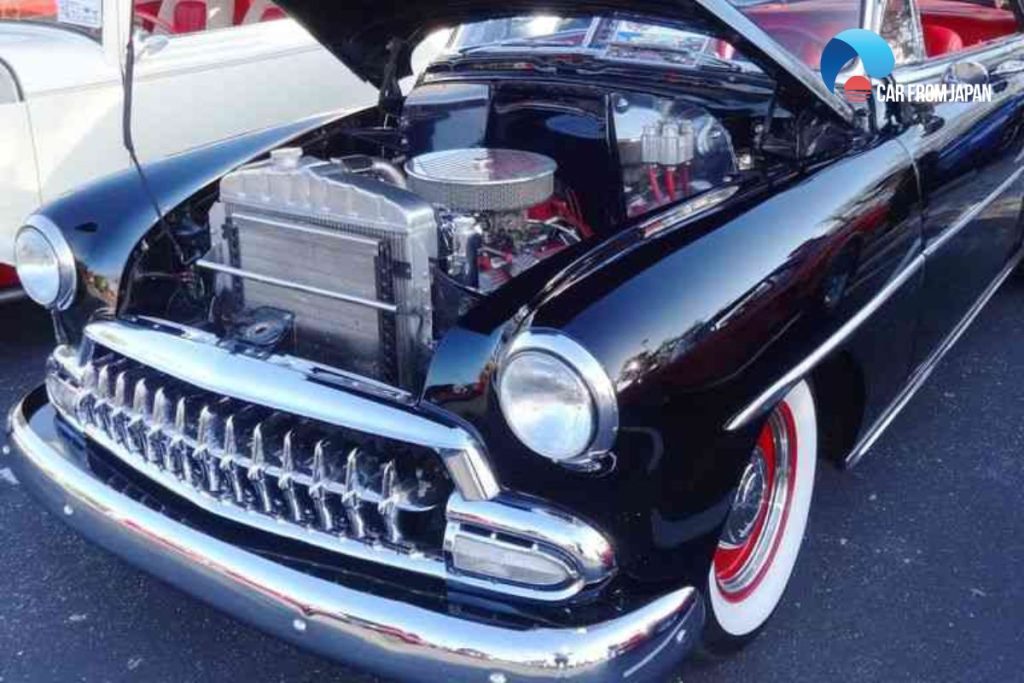
Broken cylinder head gasket
A damaged cylinder head gasket is one of the major causes of increased pressure.
The cylinder head gasket typically keeps the cooling system, and the engine’s combustion chambers separate.
If it leaks or is damaged, combustion gases can enter the cooling system. Increased pressure and cavitation in the coolant are two of the most obvious signs.
Clogged radiator or thermostat
Dirt or dust particles can build up in your car’s radiator or thermostat over time. They will impede the coolant flow and cause pressure to build up in the system.
Moreover, a stuck thermostat that fails to open or close properly can also be a cause you need to look into.
Air in the cooling system
You can think it make no severe impacts, however, the system’s function can get worse if not taken care of carefully.
The air in the system can expand or contract due to temperature, leading to pressure fluctuations and uneven pressure distribution. This problem can occur after the coolant is not filled properly or due to small leaks that are difficult to detect.
If the air remains in there for too long, the function of the entire system will gradually deteriorate, causing the engine to overheat.
Symptoms When There’s Too Much Pressure In Cooling System
When there’s something happen with your cooling system, the signs will show, clearly and loudly.
Loss of coolant
In an overloaded cooling system, losing coolant is common. Small leaks can be difficult to detect, such as at hose connections or the dual cap area.
If the coolant level drops rapidly or you notice obvious signs of leakage, quickly check if your cooling system is pressurized.
Bubble in the coolant tank
Air bubbles in the coolant reservoir can be one of the most obvious signs that there is too much pressure in cooling system.
Coolant in a well-functioning system will not have visible air bubbles. But if the coolant is constantly bubbling or foaming when the expansion tank is opened, maybe air has entered and increased system pressure.
In addition, a faulty cylinder head gasket, blistering, or rapid contamination of the coolant can also be a warning sign.
Stressed radiator hoses & Engine overheating
When coolant hoses are overloaded due to excessive pressure in the system, they will expand and swell, or worse, tear or burst. This issue will cause the cooling system to fail and the engine to overheat.
Damage, even a small crack, can occur if the hose swells and leaks coolant. Therefore, you need to check the condition of the coolant hose regularly, especially for older cars. Replace the hose immediately when it swells and hardens to avoid further damage later.
How Does The Pressure Buildup Happen?
Now you now know what causes cooling system building too much pressure. So how does this occur within your system?
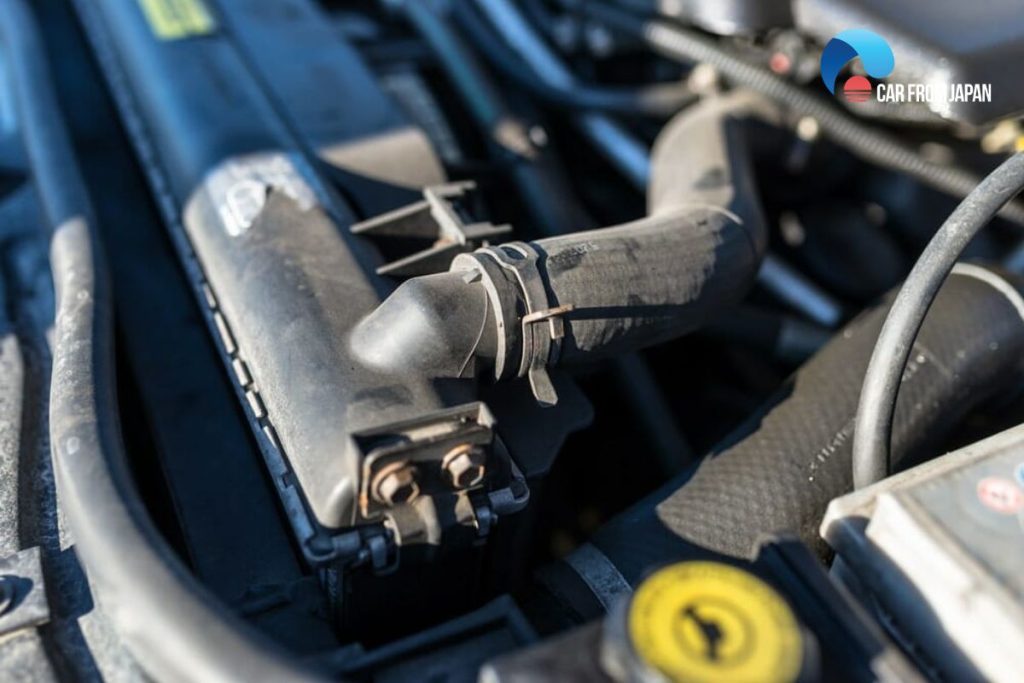
In modern vehicles, the cooling system does not leave any air space in the radiator. For this reason, the coolant does not get any space to expand even when it is hot.
Open the radiator cap when the engine is cold and you will see that the coolant level is touching the top of the cap’s flange.
The rest of the cooling system comprises a small expansion tank and a hose connecting to the radiator. The refrigerant in the tank should be on the same level as ‘COLD’ when the engine is cold.
When the refrigerant expands, there’s no space in the radiator for it to take up. But it needs to go somewhere so the cooling system’s pressure builds to the maximum pressure limit of the radiator cap’s valve.
Then, the radiator cap opens and allows a restrained coolant flow into the hose attached to the expansion tank. The tank has enough space to contain the extra coolant even if it is a bad day with extremely hot weather.
See More: Flushing a Car’s Cooling System
What Happens When The Coolant Is Cold Again?
You know what causes pressure build up in cooling system and where the coolant goes after being expanded. But what happens when it cools down again?
As like any other liquid substance, the refrigerant contracts when it cools down. When this happens, the coolant again flows back to the radiator. How is this done?
The radiator’s pressure valve offers a double-duty function. It allows refrigerant to flow into the expansion tank when pressure rises and then initiates reverse-flow when the pressure falls and the liquid is cold.
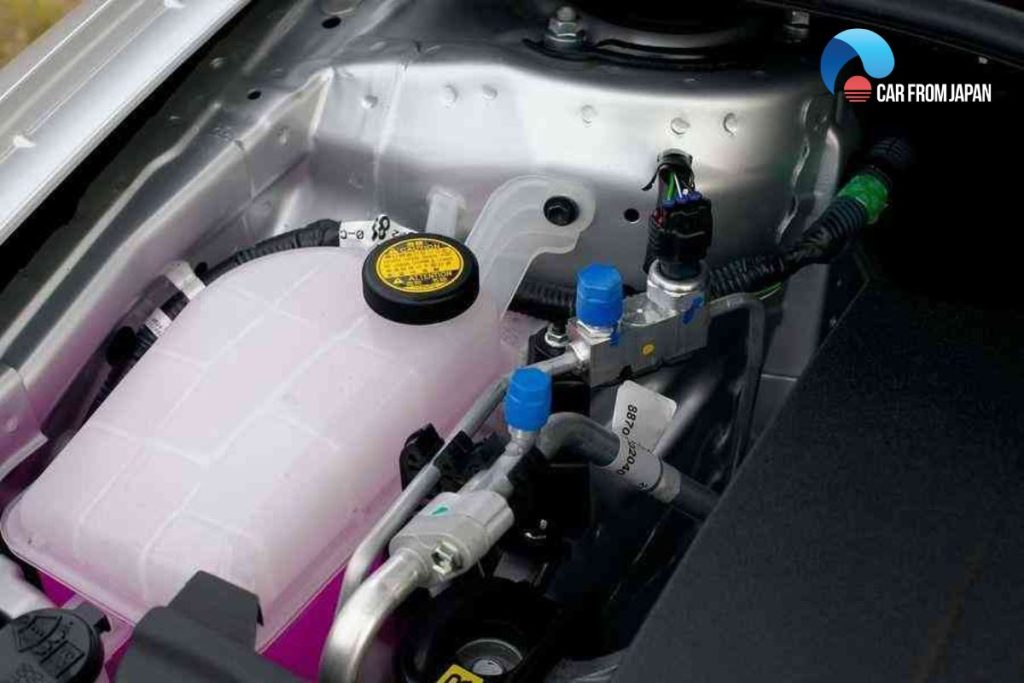
Ideally, the cooling system creates a vacuum to pull open a spring-loaded valve that sucks the coolant back from the expansion tank to the radiator.
How Can Pressure Be Released in the Cooling System?
An easy way to release pressure in the coolant system and lessen the heat produced by the engine is to turn on the heater.
Due to the heater core’s proximity to your radiator, when you turn on the heater, it will aid in removing some of the heat from your engine.
In order to assist lower the temperature, you can also activate the fans at their highest speed. Additionally, this will assist in circulating cold air and lessen the amount of heat produced by your engine.
If these steps don’t appear to relieve the increasing pressure, stop immediately and turn off the engine. You should have a chance for a little reprieve from the engine overheating if you allow it some time to cool down.
FAQs on Cooling System Pressure
How long should a cooling system be able to withstand pressure buildup?
At least two minutes, however it can occasionally take longer depending on the type of coolant used, how quickly the lid is removed, and the technician’s ability.
Whether not, see whether the coolant boils or leaks out of the reservoir.
Can faulty or stuck thermostats cause too much pressure in coolant system?
Indeed, in order to prevent excessive pressure in cooling system, we advise checking for leaks in the damaged thermostat housing.
Why does the pressure in the car radiator remain overnight?
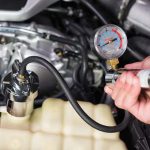
If your cooling system holds pressure overnight or there is still pressure in your radiator after it has cooled, your car may have a blown head gasket that is pouring exhaust gas into the water manifold.
How long to wait to open coolant cap?
It usually has to cool for 1-2 hours before it is cold enough to open the coolant cap securely.
If you’re trying to check the coolant level, you should probably wait for 3-5 hours because the coolant may expand if it’s still warm, giving a falsely high result.
Final Words
So you now have grasped some notices about what causes too much pressure in cooling system and ways to manage the extra pressure and make sure the engine tank is no longer bothered by it.
The cooling system is always subject to excessive heat caused by sunshine, filth, grime, and other external causes, unless the weather in your area is consistently very cold.
After each ride, be sure to thoroughly inspect everything, and have experts check them as part of their regular maintenance.
Check out this video from EricTheCarGuy to learn more about Pressure Testing Cooling Systems properly!

